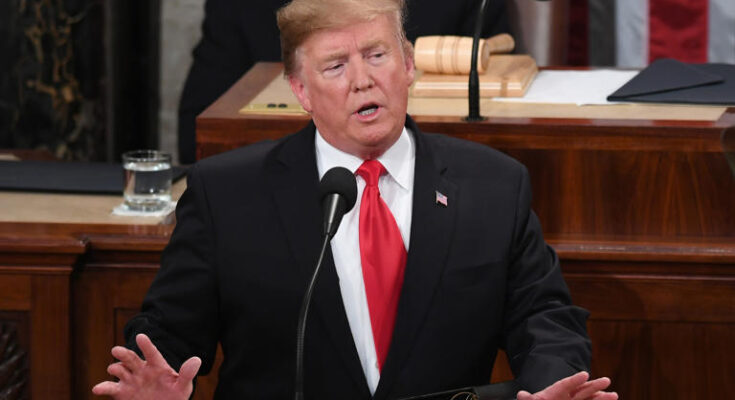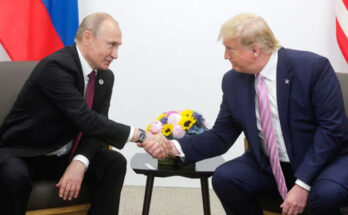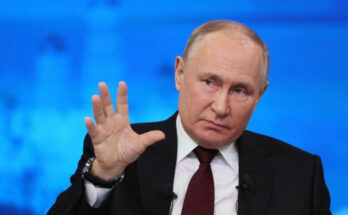President Donald Trump received a red flag about the state of the U.S. economy just one day before his address to Congress.
Newsweek reached out to the U.S. Treasury for comment via email.
Why It Matters
Trump is set to deliver his first joint address of his second term on Tuesday amid growing concerns about the economy. He ran on lowering prices on everyday goods during his campaign, frequently criticizing former President Joe Biden and former Vice President Kamala Harris for the high inflation millions of Americans have dealt with due to the COVID-19 pandemic.
However, prices remain high, and polls suggest Trump is beginning to feel the heat from voters more than a month into his presidency.
What To Know
On Monday, the Federal Reserve Bank of Atlanta said its estimate of the United States’ GDP for the first quarter of 2025 dropped to -2.8 percent, a worrying sign for the economy.
A new report from the Institute for Supply Management (ISM) found that the manufacturing index dropped from 50.9 in January to 50.3 in February, contributing to the GDP drop, according to the Atlanta Fed.
The Atlanta Fed believed the U.S. GDP was on track to grow throughout most of February, with estimates ranging from positive 2 to nearly 4 percent. On February 28, however, its estimate dropped to -1.5 percent before falling again on Monday.
The Associated Press pointed to the possibility of tariffs and a decline in consumer spending as the reasons for the earlier drop.
Trump said that tariffs with Canada and Mexico would resume on Tuesday after a 30-day pause. Many economists have warned that these tariffs would increase prices on imported goods and housing for Americans.
The Atlanta Fed’s estimate is not an official forecast but a “running estimate of real GDP growth based on available economic data for the current measured quarter.” It also does not capture the impact of COVID-19 and social mobility, the Atlanta Fed notes.
It’s not the only worrying sign for the economy on Monday. The Dow Jones Industrial Average fell more than 500 points after Trump’s tariff announcement.
Kevin Thompson, a finance expert and founder/CEO of 9i Capital Group, told Newsweek on Monday that Trump should be “very concerned” about the Atlanta Fed numbers.
He noted that while Trump and his supporters may argue he inherited these economic challenges from Biden, “there will come a point when this rhetoric falls on deaf ears and no longer carries weight.
“But that time is likely not today,” he said.
Mark Williams, a professor of finance at Boston University, told Newsweek that “alarm bells should be sounding” for the Trump administration amid a “growing body of economic data is pointing to a slowing economy that could move into recession.”
“The Trump Administration ran on a campaign of strong growth and low inflation, yet economic indicators show a slowing economy, greater consumer uncertainty, and spike in inflation. On Friday, the February jobs report will also be released, and if it is weak, this will further support a slowing economy,” he said.
Williams noted a decline in GDP growth would be the first since 2022, and two consecutive quarters of negative GDP growth would translate into a recession.
Thompson said tariffs are a key factor that may be driving this economic uncertainty.
“If businesses don’t know what their input costs will be from month to month, they operate cautiously,” he said. For instance, if tariffs are expected to rise, businesses may stock up on materials today. But if those tariffs are later reversed, they could be left with excess inventory. This creates a cycle of hesitation—a wait-and-see mode—that disrupts normal operations and investment decisions.”
Trump’s more restrictive immigration policies may also be playing a role in economic concerns, Williams said.
“Since January, when Trump’s tariff and immigration policies were first introduced, the US economy has become more fragile. Given the slowing US economy, the Administration should reconsider the size, scope, and speed it rolls out these plans,” he said.
A dropping GDP is viewed as a sign of a recession, though economists have offered various perspectives about whether the U.S. is likely to see a recession this year due to the tariffs.



